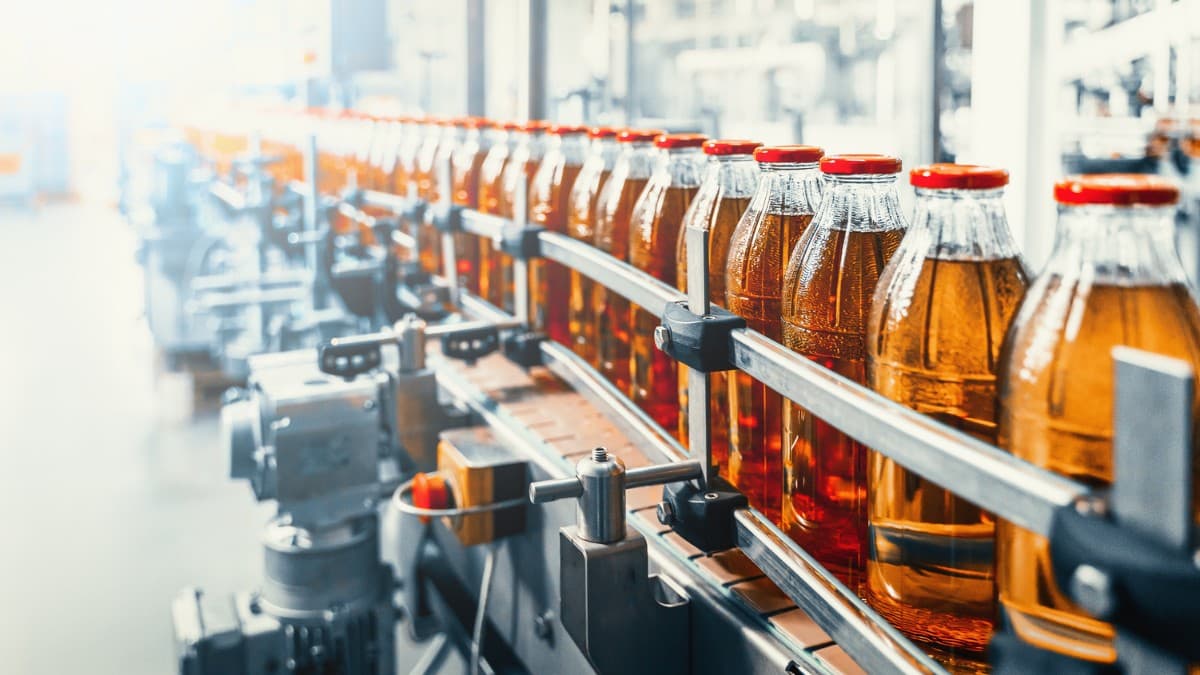
As temperatures rise, so does demand in the beverage industry. From sparkling water to hard seltzers, peak beverage season—spanning late spring through summer—can bring a surge in volume up to 80%. For beverage companies, this spike often comes with two major challenges: unpredictable disruptions and unreliable forecasting. But—as someone who has worked closely with beverage shippers for years, I know how the right strategies can turn peak season from a stressor into a strategic advantage. In my experience, here are five proven ways to stay ahead of the game when demand surges.
-
Plan for the surge—not just the average
Peak season isn’t business as usual. It’s a high-stakes sprint where demand can outpace forecasts overnight, and planning for the average just isn’t enough.
At C.H. Robinson, we help beverage shippers prepare for the extremes—not just the expected. Our scale and data-backed insights allow us to anticipate volume spikes and flex capacity accordingly.
When a packaging supplier in the beverage space had to quickly shift production sites, their embedded drop trailer and dedicated fleet network were thrown off course. Within days, we designed a pop-up fleet solution and deployed 40 Power+ trailers to cover the new origin. What started as a three-month fix became an eleven-month engagement—proving valuable enough to be repurposed for future unplanned changes across multiple sites.
When you plan for the surge instead of reacting to it, you position yourself to meet demand head-on, minimize disruptions, and capitalize on opportunities. Proactive planning turns potential chaos into seamless operations, ensuring you stay ahead of the competition.
-
Use Drop Trailer to unlock flexibility
When dock doors are full and your team is stretched thin, drop trailer service can be a game-changer. It’s not just about convenience—it’s about keeping freight flowing when every minute counts.
A drop trailer strategy gives you the flexibility to load and unload on your schedule, reducing bottlenecks and keeping freight flowing. This is especially valuable for beverage makers expanding SKUs into niche flavors and formats.
For example, we have a long-term relationship with Molson Coors and have helped them develop an effective drop trailer strategy that flexes based on their changing needs:
“The drop trailer solution has and continues to support planned and unplanned lanes and volumes, expands as demand requires, and consistently hits our key metrics. Our sites produce to ship—not to stock--- this means having equipment on-site with high velocity turns is essential. The team at CH Robinson continues it hit the mark executing our needs.” Molson Coors
-
Build resilience into your forecasting
Forecasting during peak beverage season is notoriously difficult. Promotions, weather, and shifting consumer preferences can throw off even the most well-modeled plans.
That’s why it is critical to build proactive, resilient strategies. There are many ways that we’ve helped shippers build more resilient forecasts, including:
- AI-enhanced forecasting: Our tools analyze historical data, market trends, and macroeconomic signals to adjust forecasts in real time. For example, if a heatwave is predicted in the Midwest, we can help you anticipate a spike in bottled water demand and adjust your transportation plan accordingly.
- Scenario planning: We work with you to model best-case, worst-case, and most-likely demand scenarios—so you’re never caught off guard.
- Inventory visibility: With item-level visibility and predictive analytics, you can better align production and distribution, reducing costly overstock or stockouts.
-
Choose a partner that can scale with you
Not all logistics providers are built for peak season. When capacity tightens, especially during produce season, you need a partner with the scale and financial strength to deliver.
With access to over 450,000 contract carriers, at Robinson, we can keep you covered from coast to coast.
What this looks like in action:
- Surge-ready capacity: Scale up quickly to meet peak demand, even during tight markets.
- Global reach, local expertise: Whether you’re shipping regionally or across borders, your freight is covered.
-
Act now—not later
The best time to prepare for peak season is before it hits. The second-best time is now.
If you're already feeling the pressure, it’s not too late. We’re surge-ready and standing by to help you stabilize your supply chain, reduce risk, and deliver with confidence.
Here’s what you can do today:
- Request a drop trailer assessment: We’ll evaluate your facilities and volume to see where drop trailer can reduce dwell time and increase throughput.
- Connect with a beverage logistics expert: Our team specializes in beverage supply chains and can help you identify gaps in coverage, optimize routes, and improve service levels.
- Get a quote or RFP support: Whether you’re planning for next season or need help now, we’re ready to step in.
In conclusion, navigating the peaks and valleys of the beverage industry's high-demand season requires strategic planning, adaptability, and the right partnerships. By implementing these strategies and staying proactive, shippers can not only meet the surge in demand but also enhance their overall operations. Don't hesitate to reach out to our experts who are ready to assist you in making this beverage season your smoothest yet.



